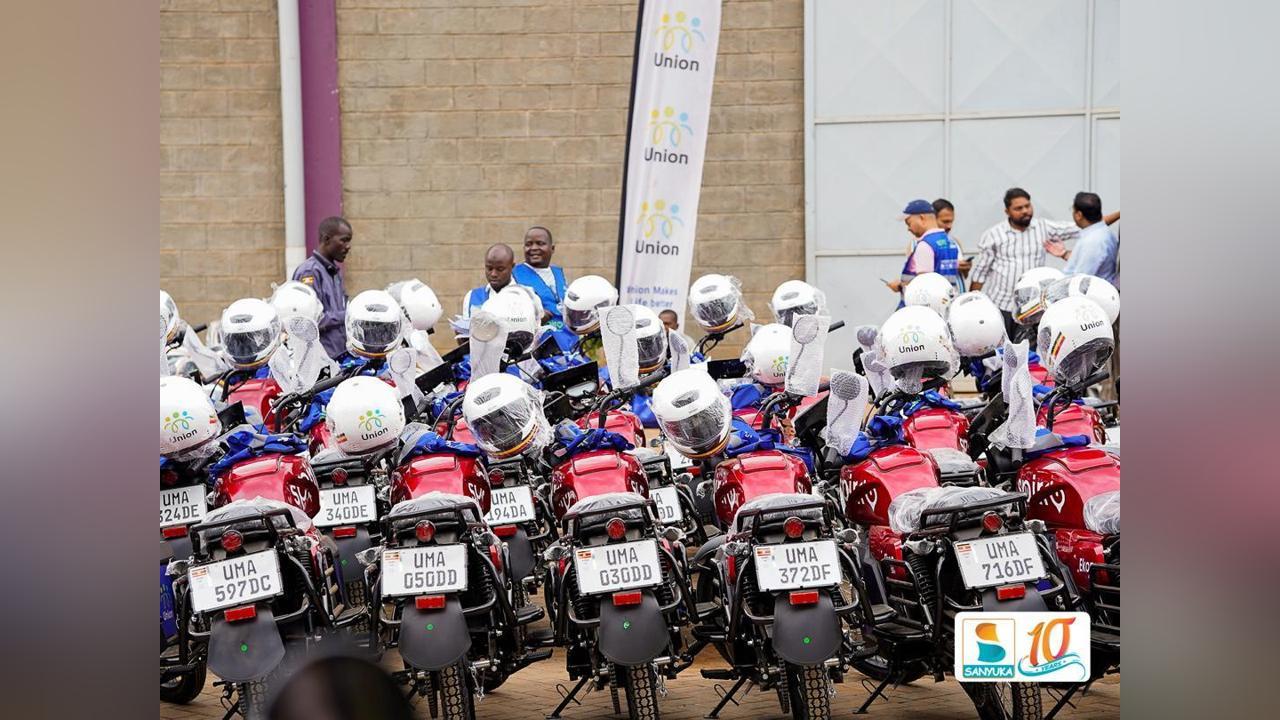Africa-Press – Uganda. The day was marked by both sorrow and urgency—a burial service for a work colleague in the outskirts of Muyenga, followed by an urgent call from a client, summoning me back to Naguru to walk her through an upcoming project. Kampala doesn’t pause for grief. No city does. I called Kasirivu, my trusted boda rider, to come pick me up. His calm presence and measured riding style have always set him apart from the chaotic swarm of Kampala’s motorcycle taxis.
Kasirivu, in his early 40s, is not your typical boda boda rider. Through his professional smile, there’s a quiet resolve about him, a sense that every ride is a step toward a future he’s carefully planning. Today, his Spiro electric bike gleamed beneath the morning sun, a silent promise of change in a city choked by fumes and noise.
The Jinja Road Gauntlet
We sped toward the heart of Kampala, weaving past Greenhill School, into the labyrinth of traffic at the infamous Jinja Road Electoral Commission junction. Here, the city’s arteries clog with hundreds of boda bodas, all jockeying for position. The air vibrated with anticipation and the metallic chorus of revving engines and dust. When the traffic officers finally waved us through, the intersection erupted—a mad rush of bikes, horns, and shouts, each rider desperate to seize the brief window of movement.
The noise was overwhelming, a physical force that pressed in from all sides. Yet, atop Kasirivu’s electric bike, the usual roar was replaced by a gentle hum. It was almost surreal but disconcerting.
A City Gasping for Air
But the air told a different story. Even as we glided forward, the exhaust from hundreds of combustion engines filled our lungs, a daily reality for both riders and passengers.
Uganda’s air quality is a crisis hiding in plain sight. Recent studies have painted a grim picture, with particulate matter levels in Kampala regularly exceeding safe limits. One scientist who presented these findings to a room of researchers recalled that you could hear a pin drop as they detailed the hazardous conditions residents endure daily.
Much of this pollution comes from the thousands of combustion-engine boda bodas that are the lifeblood of the city, delivering goods, ferrying children to school, and providing employment for over 200,000 riders in Kampala alone. They are indispensable, yet they are also a key source of the very pollution that chokes the city.
According to data from the University of Cambridge’s Institute for Sustainability Leadership, the annual average level of PM2.5 in Kampala sits at 41.1 μg/m3, compared to the World Health Organization’s recommended limit of just 5 μg/m3. That’s over 800% higher than safe levels. At this concentration, PM2.5 is classified as “unhealthy” to “very unhealthy”, depending on exposure duration
The Economics of Going Electric
For Kasirivu, the move to an electric boda has been transformative. He’s part of a bold collective, Union Boda, which is working with partners like Spiro and local authorities to roll out 20,000 electric bodas in Kampala. The bikes are available for a down payment of just 100,000 Ugandan Shillings, a move designed to make the transition accessible.
These bikes are also available to logistics companies, pharmacies, restaurants, and generally anyone who needs bodas for their business.
This shift brings three major wins for riders: income, health, and pride. With lower running and maintenance costs, riders are pocketing up to 40% more in earnings2. The absence of fumes means better health and no more chronic coughs. And there’s a newfound sense of dignity in being pioneers of change rather than being seen as reckless polluters.
Battery swapping, once a concern, is now a routine part of Kasirivu’s day. With over 150 battery-swapping and charging stations across Kampala and its surrounding regions, finding a fresh battery is quick and convenient.
The process takes only a couple of minutes, and the cost is comparable to, or even less than, refueling a petrol motorcycle33. This growing network, a result of collaborations between local government, private companies, and international partners, is making the electric transition a viable reality for thousands of riders.
A Rider With a Plan
The introduction of 2,000 electric bikes may seem like a drop in the ocean compared to the more than 200,000-strong boda fleet in Kampala, but it’s a significant start. This journey of a thousand miles begins with a single step, with one rider choosing differently and inspiring another.
In a city where every move feels like a negotiation—with traffic, with time, and with the air itself—Kasirivu’s silent bike spoke volumes. I walked into the office breathing easier because someone out there is already moving us toward the Kampala we all deserve.
The electric revolution isn’t just about cleaner air; it’s about dignity, opportunity, and a better life for those who keep the city moving.
Final Note: Why This Matters
The boda industry employs over 1.5 million people in Uganda and over 200,000 riders in Kampala alone, most of them youth with limited access to formal jobs. Each EV on the road is a triple investment: in cleaner cities, economic dignity, and public health.
As Dr. Gabriel Okello, lead researcher on the health impacts of electrifying Kampala’s motorcycle fleet, explains:
“Electrifying two-wheelers isn’t just an environmental necessity. It’s a public health intervention. Riders like Kasirivu are not the problem—they are the solution.”
Moreover, as one mobility policy note puts it:
“A transition to electric boda-bodas is sustainable. It would also create more green jobs in engineering, battery swapping, and charging infrastructure. Much like the mobile money invention created jobs for mobile money agents.”
The shift won’t be overnight, but initiatives like Boda Union’s are moving us forward—one silent ride at a time.
Source: Nilepost News
For More News And Analysis About Uganda Follow Africa-Press






